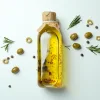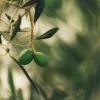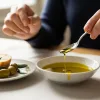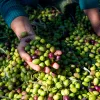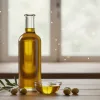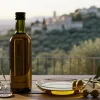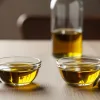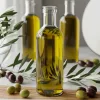One of the most frequently heard terms in olive oil in recent years is “cold-pressed.” It appears often on market shelves, restaurant menus, and even in health content. However, for many people, it remains unclear: Is cold-pressed olive oil really better? Or is it just a marketing phrase? Scientific data provides a quite clear answer to this question.
What is Cold-Pressed?
Cold-pressed means pressing the olive fruit below 27°C. This temperature limit represents a critical threshold. Because when olives are crushed and exposed to high heat, the phenolic compounds inside (especially polyphenols and vitamin E) rapidly decrease.
In oils obtained by the cold-pressed method, these compounds are preserved; therefore, the nutritional value and aromatic profile are much richer.
What Do Scientific Data Show?
Research in food chemistry reveals that cold-pressed olive oils have:
- An average 30% higher polyphenol ratio,
- Significantly increased oxidation resistance (i.e., durability against spoilage),
- And antioxidant capacity that remains stable for a long time.
This means advantages for both health and shelf life. In short, the answer to the question “Is cold-pressed better?” is yes, but only if produced under the right conditions.
Balance in the Production Process
The success of cold-pressing depends not only on temperature but also on the freshness of the olives and processing time.
If the olive is processed within the first 4-6 hours after harvest, the aromatic components inside the fruit transfer to the oil without oxidizing. For this reason, producers like NizOlive minimize the time between harvest day and pressing day.
Thus, “cold-pressed” is not just a technical concept but also means time management and production discipline.
How Is It Understood in Tasting?
Cold-pressed olive oil generally has a more intense green color and a distinct balance of fruitiness, bitterness, and pungency. These characteristics come from the oil’s phenolic richness. However, not every cold-pressed oil is high quality; what matters is the olive variety, soil structure, and processing standard.
Conclusion: Not a Marketing Discourse, a Scientific Reality
The cold-pressed expression, when applied correctly, is not just a label but the chemical equivalent of quality.
Scientifically, olives processed at low temperatures preserve more of their naturally occurring bioactive components. For this reason, the NizOlive production chain aims to fix this standard by controlling not only temperature but every step.
In short: Cold-pressed is not a trend; it is a production discipline approved by science.


